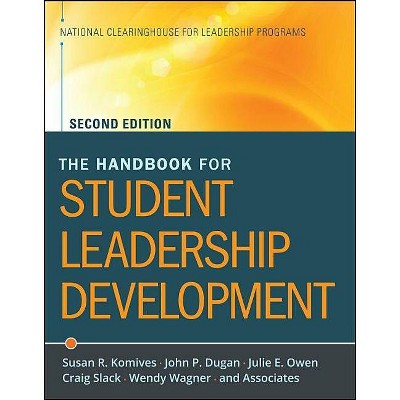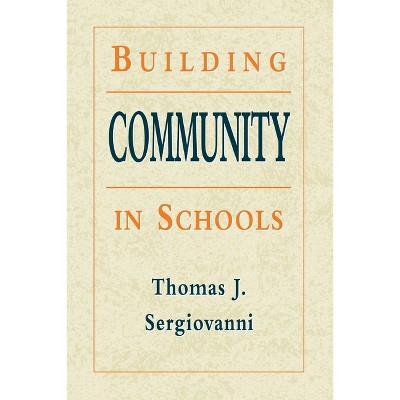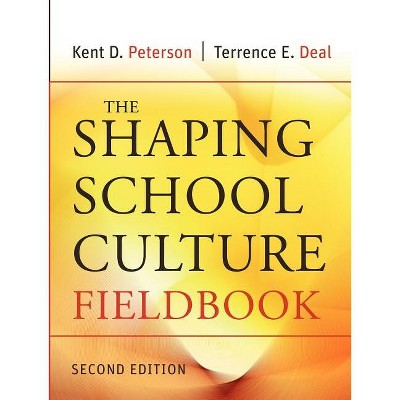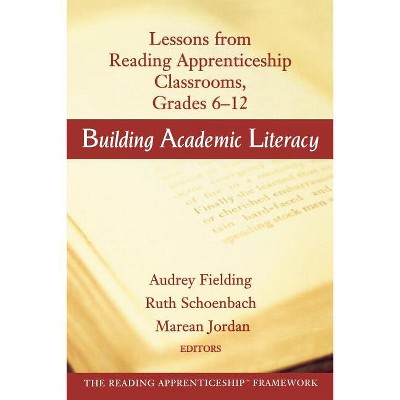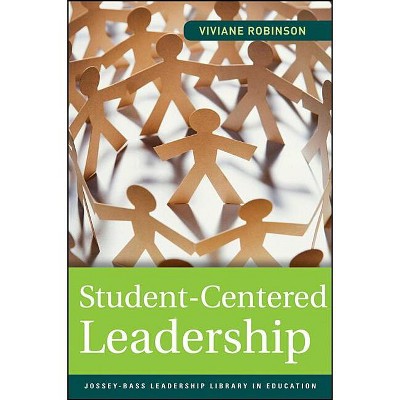Sponsored

The Handbook of Conflict Resolution Education - (Jossey-Bass Education) by Richard J Bodine & Donna K Crawford (Paperback)
In Stock
Sponsored
About this item
Highlights
- Sponsored by the National Institute for Dispute Resolution (NIDR) "This is an excellent comprehensive survey and guide to conflict resolution education that should be of great value to all educators.
- About the Author: RICHARD J. BODINE is education program director of the Illinois Institute for Dispute Resolution.
- 256 Pages
- Education, Administration
- Series Name: Jossey-Bass Education
Description
Book Synopsis
Sponsored by the National Institute for Dispute Resolution (NIDR)"This is an excellent comprehensive survey and guide to conflict resolution education that should be of great value to all educators."
--Morton Deutsch, professor, International Center for Cooperation and Conflict Resolution, Teacher's College, Columbia University
Conflict resolution education is a critical component of comprehensive efforts to prevent violence and reduce crime in schools. This workbook provides an introduction to the basic principles of conflict resolution and its application to school settings. It describes the elements of effective conflict resolution programs and gives an overview of the most popular, effective approaches. And it offers step-by-step guidance on planning and implementing a successful conflict resolution program.
An excellent resource for administrators and teachers who are planning, developing, and implementing conflict resolution programs in grades K-12. Includes an appAndix listing useful books, curricula, videos, and other resources.
Contents
Part One: The Basics
1. Resolving Conflict in Schools
2. Understanding Conflict
3. Conflict Resolution Education
Part Two: Strategies
4. Requisite Elements of Conflict Resolution Programs
5. Process Curriculum
6. Mediation Programs
7. Curriculum Integration
8. Peaceable School Programs
9. Developmentally Appropriate Practice
Part Three: Planning and Implementation
10. Developing a Vision
11. Evaluating Resources
12. Strategic Planning
13. Implementation Steps
14. Assessing Results
15. Important Factors for Success
Richard Bodine is president of the Illinois Institute for Dispute Resolution.
Donna Crawford is executive director of the Illinois Institute for Dispute Resolution.
From the Back Cover
"This is an excellent comprehensive survey and guide to conflict resolution education that should be of great value to all educators."--Morton Deutsch, professor, International Center for Cooperation and Conflict Resolution, Teacher's College, Columbia University
"From program design to an extensive list of resources, Bodine and Crawford provide many excellent examples of current best thinking and current best practice concerning conflict resolution programs in schools."
--Thomas J. Switzer, dean, College of Education, University of Northern Iowa
Safe and orderly environments in schools are essential to promoting high standards for learning and ensuring that all children have the opportunity to develop their fullest potential. Too often, however, young people face conflicts before, during, and after school. Adults cannot solve young peoples' problems for them. But they can provide them with the knowledge, skills, and encouragement to resolve conflict in a nonviolent manner--using words instead of fists or weapons. Conflict resolution education is the key to making it happen.
Sponsored by the National Institute for Dispute Resolution (NIDR), The Handbook of Conflict Resolution Education is a one-stop resource for planning, developing, and implementing conflict resolution programs in K-12 schools. Authors Richard Bodine and Donna Crawford draw on extensive practical experience--as public school teachers and administrators--to offer a fundamental, comprehensive resource for every school or district that wants to incorporate conflict resolution principles, skills, and philosophy into the way children are educated.
Based on the principles of cooperation and problem solving, conflict resolution helps students solve problems themselves by identifying underlying needs and finding solutions that meet everyone's interests to the fullest extent possible. With an easy-to-use workbook format, The Handbook of Conflict Resolution Education takes readers step-by-step through developing a successful program.
In a shared vision that each and every school will provide a safe and welcoming environment for learning, Bodine, Crawford, and NIDR provide administrators and teachers with everything they need to get started on a conflict resolution program. A program that will not only assist students in finding alternatives to violence, but will also support them in developing the social competencies of cooperation, empathy, creative problem solving, social cognitive skills, and relationship skills--core abilities that will give them the tools they need to resolve disputes--both in school and in the greater community--in a safe and nonviolent manner.
Review Quotes
"An excellent comprehensive survey and guide." (Morton Deutsch, professor, International Center for Cooperation and Conflict Resolution, Teacher's College, Columbia University)
Crawford and Bodine argue persuasively that schools can be active agents for social change and that schools can and should intervene in the lives of young people in a proactive manner. Schools, they contend, can teach alternatives to violence. Such and intervention should start in the early grades and be approached systematically throughout the school curriculum. A major contribution of the book is the practical advice it provides to those who want to start conflict resolution programs in schools. From program design to an extensive list of resources, Crawford and Bodine provide many excellent examples of current best thinking and current best practice concerning conflict resolution programs in schools. (Thomas J. Switzer, dean, College of Education, University of Northern Iowa)
About the Author
RICHARD J. BODINE is education program director of the Illinois Institute for Dispute Resolution. He holds a Master's degree in special education specializing in gifted children and an advanced certificate of education in administration from the University of Illinois, and received the Illinois State Board of Education "Those Who Excel" award as an outstanding administrator.DONNA K. CRAWFORD is executive director of the Illinois Institute for Dispute Resolution. She holds a Master's degree in special education and an advanced certificate of education in administration from the University of Illinois and is an experienced mediator, reality therapist, and dispute resolution trainer.
Shipping details
Return details
Trending Non-Fiction






